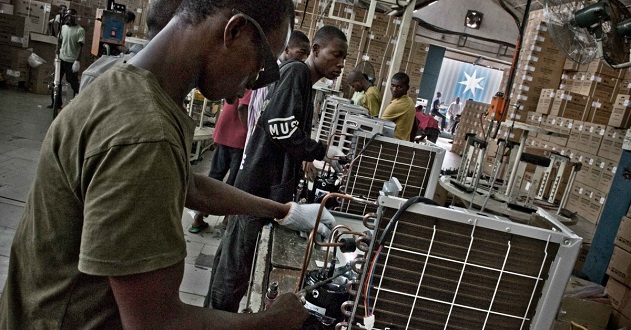Business
MAN accuses Nigerian govt of transferring N77bn debt burden to manufacturers

The Manufacturers Association of Nigeria (MAN) said the Federal Government is placing its N77 trillion debt burden on manufacturers through high and multiple taxes.
In the association’s first quarter (Q1) Manufacturers CEO Confidence Index (MCCI) obtained on Monday, the group said the government is using the manufacturers to generate revenue to repay its debt.
According to MAN, its members are bearing the brunt of the debt piled up by the government, stating that FG’s desperation to increase revenue and spending is crowding out private sector investment.
MAN said the indiscriminate imposition of high and multiple taxes on manufacturers so the government can generate high revenue is creating a harsh business environment.
In the Q1 report titled; “Special Focus: MAN at the Receiving End of National Debt Crisis,” MAN described the tax burden as anti-growth, “domino effects of escalating public debt on the manufacturing sector are endless.
READ ALSO:DMO allays fears on transfer of N22.7tr debt burden to Nigerians
“To start with, rising domestic debt is highly crowding out private investment in the manufacturing sector by reducing credit availability and forcing hike in lending rates,” the report reads.
The manufacturers also blamed the debt repayment for the depreciation of the naira, stating that external debt service is raising demands for foreign currencies, “higher debt servicing is consuming greater volume of foreign exchange and worsening the foreign exchange scarcity that has plagued the manufacturing sector for many years.
“Huge public debt led to low foreign investment and foreign capital inflow which worsen the foreign exchange (FX) scarcity that has remained a bone in the throat of manufactures.
“As public debt continues to grow unsustainably, it becomes increasingly difficult to cover salary payments and other recurrent expenditure in the civil service.
“The implication is more borrowing for government consumption on recurrent expenditure and less on infrastructure and other capital projects meant to boost manufacturing sector performance,” MAN noted.
It further stated that the importation of non-locally produced critical inputs become highly expensive for manufacturers due to weak naira.
Join the conversation
Support Ripples Nigeria, hold up solutions journalism
Balanced, fearless journalism driven by data comes at huge financial costs.
As a media platform, we hold leadership accountable and will not trade the right to press freedom and free speech for a piece of cake.
If you like what we do, and are ready to uphold solutions journalism, kindly donate to the Ripples Nigeria cause.
Your support would help to ensure that citizens and institutions continue to have free access to credible and reliable information for societal development.
























